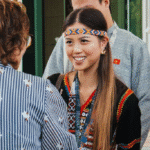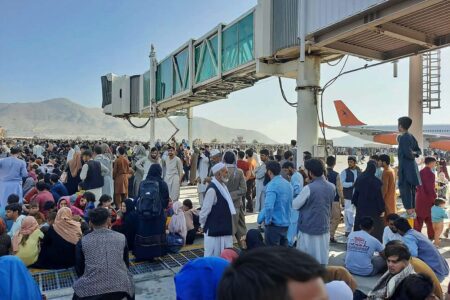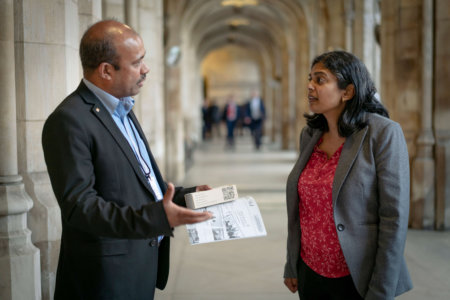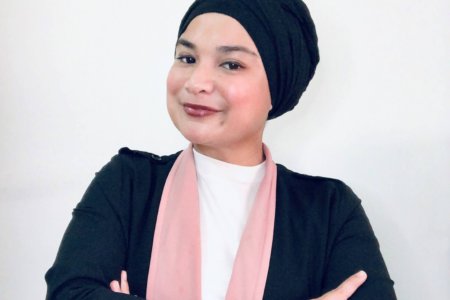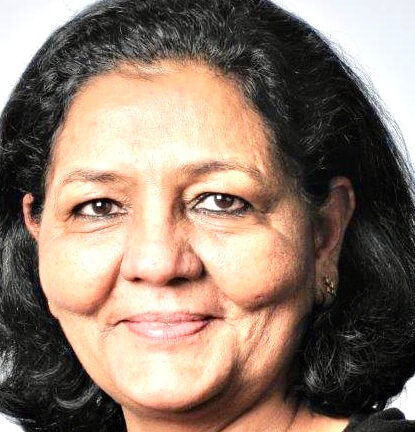
Kanta Singh was one of the 12 recipients of the Chevening Gurukul Fellowship, a programme that the British High Commission runs in India. They offer different fellowships across sectors like science, innovation and technology, journalism, and political leadership.
Singh is the country programme manager for UN Women — no small feat considering she came from a small village where resources and opportunities were scarce, if they existed at all.
She’s always wanted to do more and learn more — little surprise then that in 2019, she decided to apply for a three-month Chevening fellowship which took place at the University of Oxford. Her goal was to maximise the exposure abroad — plus, she was drawn to their daily guest speaker sessions led by mostly renowned scholars and professors sharing their insights.
“Every week, we travelled to London for a lecture or a meeting with the foreign department. We also visited parliament and meet MPs,” she shares.
We caught up with Singh to learn more about her background, how she won a job at the UN, her Chevening programme at Oxford and her future plans:
Walk us through your interest in sociology and your timeline.
Because I come from a small village in one of the provinces in India and I didn’t know much about my country. The schools in the villages have no infrastructure to prepare you for life in the cities which is how I think most developing countries are.
We all grew up thinking the maximum we can be is a teacher or if we dream big, landing a government job in an office. When you grow up thinking this is your reality, your life is very limited.
When I was nine, my brother was reading about the UN in his social sciences book and explained to me that they worked for world peace. In my innocent childlike way, I decided then and there I wanted in.
Then, I got a sports scholarship to study at an agricultural uni where I got free tuition and accommodation. I also got the chance to study sociology so everything I did after was in that direction.
However, life doesn’t always pan out. I got married before finishing my master’s and I felt like my dreams and aspirations were impossible to achieve. Fortunately, my husband is an army officer and supported me to start working.
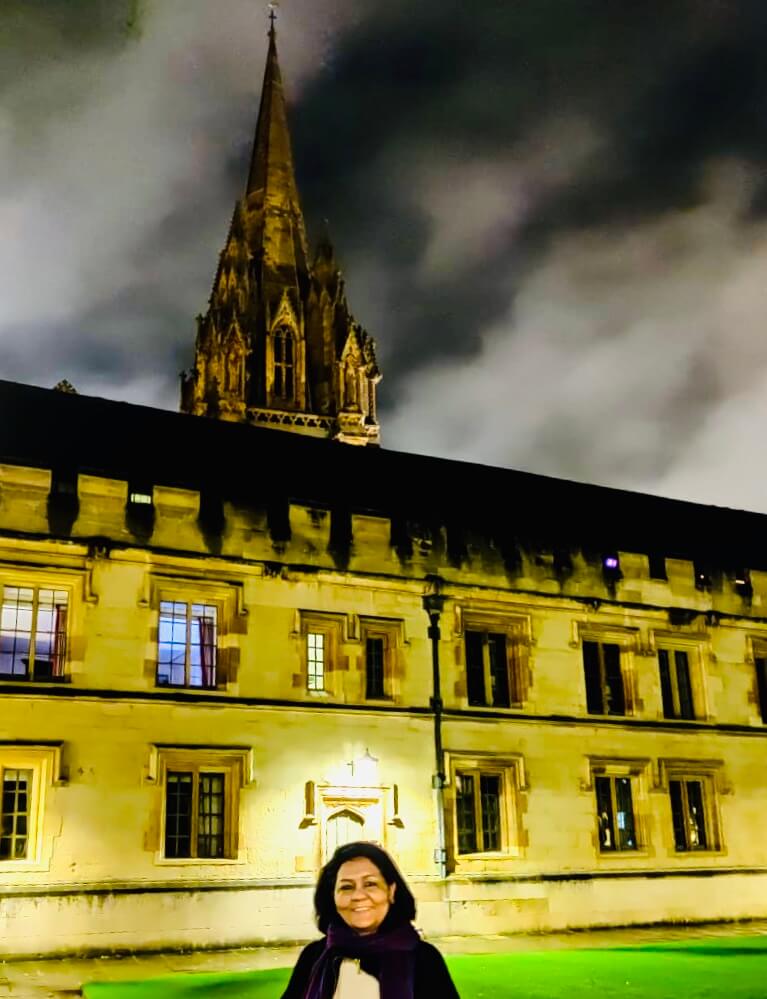
Kanta Singh did not let her humble beginnings stop her from dreaming big. Source: Kanta Singh
I started working from home at first because I had two young daughters and then continued in consultancy. After that, I started working with international organisations.
I joined the United Nations Development Programme (UNDP) because I wanted to do everything in my capacity to help other girls and women achieve their dreams. I mentor a lot of young women and provide a lot of counselling guidance to them.
I also go to colleges and schools to motivate young women to be financially independent and do something for their lives. A marriage should not be an aspiration but work should be. Last but not least, I lead a large programme at UN Women on women’s economic empowerment.
Walk us through what a Chevening Gurukul Fellowship is.
This fellowship is a workshop purely for learning and one of the most prestigious flagship programmes from the British High Commission. They take senior people for three months of exposure and teach them to excel in leadership.
When I got selected, I had recently moved from UNDP to UN Women so my boss at UNDP was the one who made the letter of consent I needed in my application. My new boss at UN Women thought it was too early for me to take a three-month sabbatical as I was just hired then.
However, by God’s grace, everything finally worked out like a Hindi film story. Before you go, you have to select a theme, story, or area you want to work on. For me, the theme was women’s political representation because it’s small in the Indian Parliament and state assemblies.
What about your time at the University of Oxford? Was it fun?
The first thing that strikes you is the number of young people everywhere. Even though it’s an old town, it’s full of young energy because the uni has some of the brightest students from all around the world.
The structure of our programme is to attend talks every day and some days, there are three speakers talking about different topics. For instance, it could be about cybersecurity, or China’s role in the world, or dollar dominance.
Some of the topics were things we hadn’t learnt about in our work so it was great to further our knowledge. We also got the chance to talk to the guest speakers, ask them questions and network with them.
It was also nice to visit the libraries, cultural fairs and foundries where startups compete with each other. Every day, there was a new competition so the air is always buzzing with excitement.
Also, learning from the cohort of 12 was great because we all came from different fields. Everyone has a personal story and motivation and it was an interesting insight into their lives. We added even more value to our fellowship by travelling across the UK and Europe — 11 countries in 11 weekends!
Furthermore, every week, we travelled to London for a lecture or a meeting with the foreign department. We also visited parliament and meet MPs. Besides the social aspect, there were also a lot of nature-related activities around Oxford where everyone would cycle and hike to visit old places and museums — a lot of cultural exposure.
What were some of the countries you visited and did any stand out to you?
I’ve been to France and the Netherlands many times before. Places like Iceland, Scotland and Switzerland were amazing. I felt sad in Poland because of its history and how young people there have this air of giving up.
Other places we visited were Belgium and Germany. All this travelling was possible because we are all working professionals and had our own money.
What did you like most about the UK?
What I liked most was how safe it was. It shocked me to see girls travelling alone around the towns. Another thing was how well they preserve buildings in the UK like 200-year-old colleges. Lastly, is how clean the parks and public places are.
Walk us through your role at UN Women in India.
It’s in our mandate at UN Women to talk about young people and safe mobility — online and offline. We provide technical support to common people to make public spaces safer. We also work on cybersecurity in particular for women.
I do share insights with my colleagues who work on violence against women issues. So when I was in the UK, I met 26 women MPs who also mentioned that safety, physical safety and cybersecurity are some major concerns for them because online bullying is a major barrier for women.
This, I feel, gives off a feeling that women across the globe have to come together to claim their share in power structures like the parliament. When I came back to India, I used the alumni fund I won to create a leadership training programme for 50 women who planned to contest in the 2014 elections.
Are there inspiring stories at UN Women you can share with us?
There are too many to share but personally, I am inspired when I see young women go to school. Such women are typically living in difficult areas like the mountains which are hostile in terms of climate and more. You see young children between 10 to 12 walking five kilometres.
What’s your favourite food in Europe?
I like the smell of coffee in the streets although I’m not a coffee drinker. But when I walk around a cold country and I smell coffee on the streets, it’s amazingly overpowering and comforting on a cold rainy day.
Did you miss anything from home?
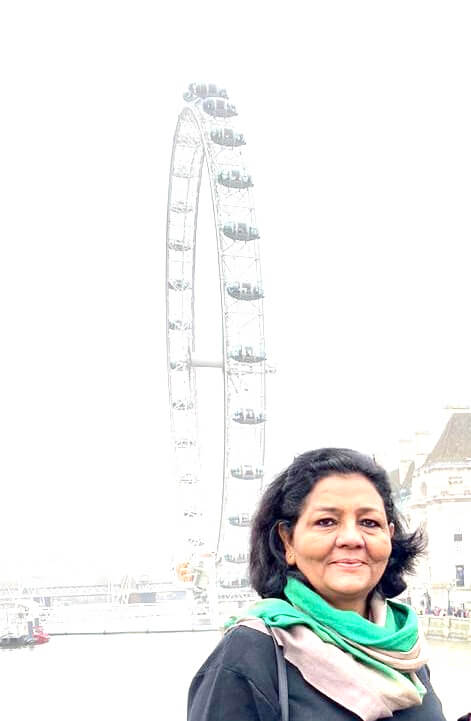
“What I liked most was how safe it was. It shocked me to see girls travelling alone around the towns,” she says. Source: Kanta Singh
Nothing, I missed nothing. My work team in India is very hands-on and they took care of everything. For me, it was the last big chance of having fun without thinking of my identity so I didn’t miss anything at all.
Finally, any words of advice for women who want to apply for a Chevening Scholarship or fellowship?
I’m happy that in countries like India, things are changing where higher education is of greater importance. There is finally equal, if not more, numbers of girls in colleges and unis.
I just want to tell young women to continue because there is nothing they can’t achieve. Something I discovered from my own experience is that the only limiting factor is yourself.
Don’t prepare yourself for marriage but prepare yourself with work because there is nothing that will replace your financial independence. However rich your husband or parents may be, you need your own money to respect yourself. Meet people, learn from them, don’t limit yourself by your circumstances, and explore the world.





